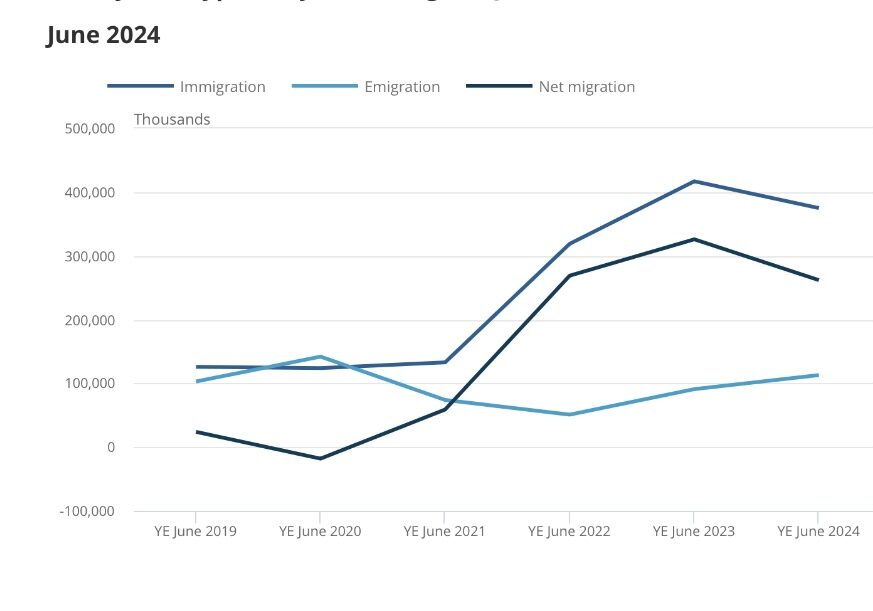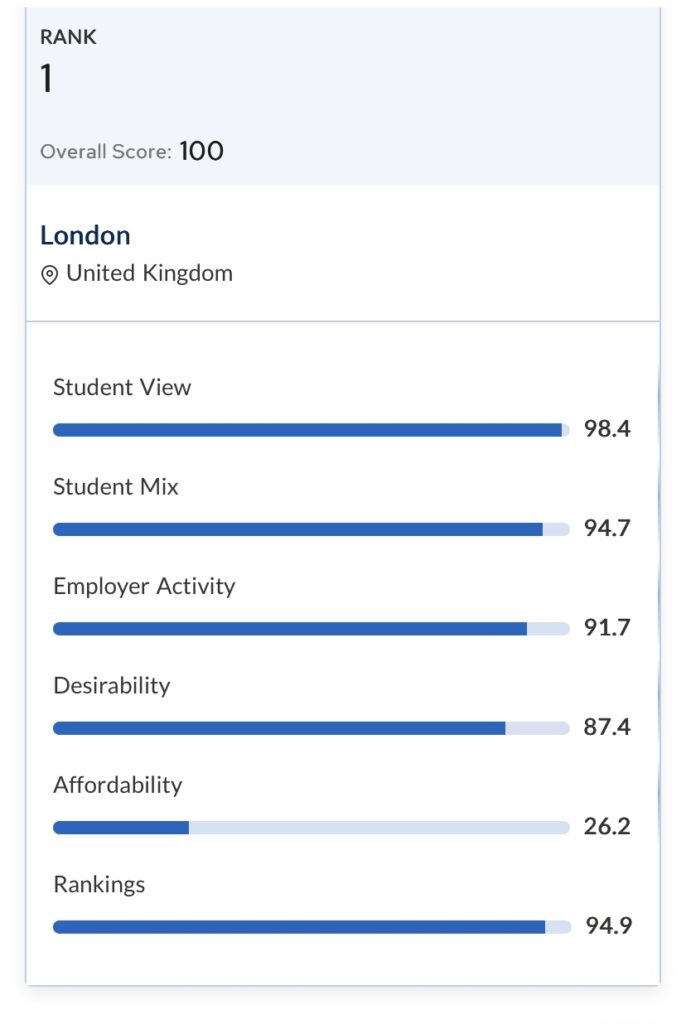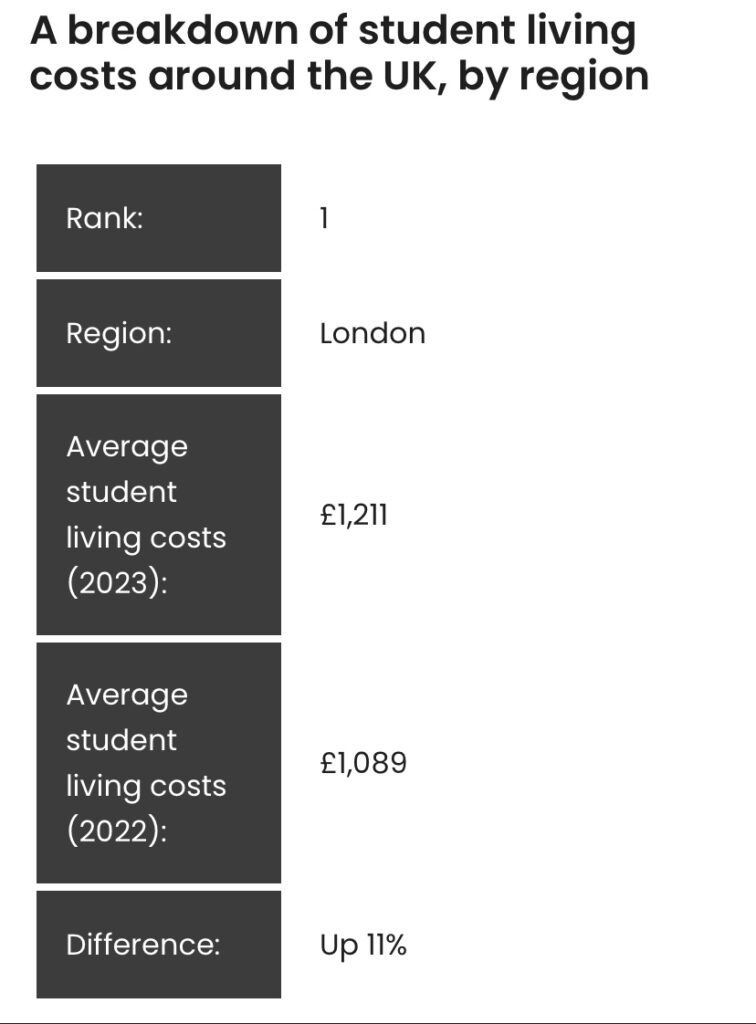Do you know there are many UK cities best for international students? Where study, work, and culture meet.
No cap, this is a guide that will show you how to pick the city that fits your career goals.
You’ll be diving into the Best UK cities for overseas students, which offer strong universities, clear career links, affordable living, and social scenes.
Whether you are in search of top UK universities for international students, affordable cities to study in UK, or vibrant student life in London UK and beyond, this article breaks it down.
By the way, expect tips on international student accommodation UK, student jobs UK cities, and multicultural UK universities that boost your network.
Ready? Let’s dive in and find the city that launches your next career move.
Why the UK is a Top Destination for International Students
The UK draws global learners with strong universities, clear career routes, and a wide range of cultural experiences. You’ll find world-class research, practical teaching, and industry links that help your CV. Plus, many cities host multicultural campuses and vibrant professional scenes.
That’s why so many people look for the UK cities best for international students when planning a career move. The UK is practical, prestigious, and welcoming.
Quality of Education in the UK
Quality matters when you invest time and money, which is why UK degrees are respected worldwide and many universities rank highly. You can expect rigorous teaching, access to labs and industry projects, and clear assessment methods.
Best of all, many courses include practical placements or internships that link study to work. If you are focused on a career change, you can look for top UK universities for international students that offer professional accreditation and career services.
Choose programs with strong employer links and active alumni networks to boost your post-study prospects. Think about course length: one-year master’s can be efficient for mid-career professionals, but balance cost versus depth.
Also note that research degrees offer different visa options and family rules. So, before you apply, compare course content, employer ties, and support for international students. This can make all the difference today.
Multicultural Environment and Student Diversity
You’ll notice that UK campuses attract people from around the world. This diversity enriches class discussion and builds your global network. Picture a collaborative project with peers from diverse industries and cultures, which sharpens your problem-solving and soft skills.
Many multicultural UK universities run mentorship and language support to help you settle in quickly with diverse cohorts, increase creativity and job connections after graduation.
If you value international perspectives, these environments make learning practical and rewarding for career changers and professionals. You can join societies, professional clubs, and cultural festivals that match your background and interests.
And the good news is that these clubs often lead to local internships and industry contacts. Don’t forget to explore student events that help you meet employers and experience the vibrant international student life in Manchester/Edinburgh/Glasgow scenes with rich cultural calendars.
Career Opportunities After Graduation

Career outcomes are a key reason professionals study abroad. You want courses that lead to clear job paths and employer contacts. Many UK degrees include careers support, placement options, and alumni networks that can help you change roles.
The Office for National Statistics estimated net migration for people on study visas was 262,000 for the year ending June 2024, showing strong movement of students and graduates.
So, if your goal is work experience after graduation, check the course links to industry and graduate employment rates. Post-study work rights and employer sponsorship rules change, so factor them into your decision.
Consider programmes with employer projects or internships, and use career fairs to meet recruiters. And you don’t have to wait until graduation to build professional ties; you can start networking and use university career hubs right away.
See Also:
Top UK Cities for International Students
Not all UK cities are the same for study or work. You’ll want cities that balance cost, jobs, and high-quality teaching.
Here are the highlight cities that often top lists for career-focused students and lifestyle. Use this guide to compare living costs, university reputation, and local industries when you shortlist your options.
In short, these Best UK cities for overseas students offer a mix of opportunity and support. Talk about London, Manchester, Edinburgh, Birmingham, and Glasgow and many others.
London – Global Opportunities and Cultural Exposure

Source: Topuniversity.com
London offers unmatched global opportunities, major employers, and a vast cultural scene that fits career-focused students. It is one of the best cities in Uk for students. You’ll find internships at multinational firms, networking events, and a vast range of course choices across top universities.
In fact, London ranked number one in the QS Best Student Cities 2024 list, underlining its global appeal. That said, costs can be high, so you might want to weigh budget against opportunity carefully.
If you want international exposure, a strong student life in London UK, and direct access to employers, this city may be for you.
Plan your budget and housing early. Also, expect diverse student communities and many part-time roles across sectors like hospitality and tech. International student accommodation options are varied, from university halls to private lets.
The beautiful thing is you can meet recruiters at events across the capital and build a network that boosts your career chances.
Manchester – Affordable Living and Vibrant Student Life
Manchester is known for affordable living and a lively student scene that mixes culture and career paths. You can find strong tech, media, and professional services employers recruiting on campus.
In this city, many students find part-time roles in retail, hospitality, and university-supported positions, so for student jobs UK cities Manchester is a lovely option.
In 2023/24, the UK hosted about 732,285 international students across higher education providers, showing strong demand for studying in the UK.
If cost is a priority, Manchester often appears among the more affordable cities to study in UK, with varied housing and strong transport links. International student life in Manchester is active and welcoming.
Student unions run career fairs and employer workshops, where you can meet recruiters. Also, cheap eateries and strong transport make daily life easier.
Just know that Manchester balances low cost with practical career-building opportunities for professional students and supportive communities.
Edinburgh – Rich History and World-Class Universities
Edinburgh blends a compact city feel with world-class teaching and deep history that enriches your studies. You’ll find strong research at universities with close ties to industry and a lively cultural calendar year-round.
Simply put, Edinburgh is home to several top UK universities for international students, known for research and student support. Its festivals and museums boost your soft skills and networking chances as well.
Edinburgh is one of the multicultural UK universities that has active career services and employer links. Think about Edinburgh if you want excellent teaching, cultural life, and a city that helps your CV grow.
The student societies host industry panels, and many students find placements in finance or public policy. It is one of the best student cities UK 2025.
Birmingham – Industry Links and Diverse Communities
Birmingham offers strong industry links, especially in engineering, business, and services, which benefits career-focused students. It has a large student population and good transport links to London and major cities.
You’ll find a mix of university research and applied courses with employer partnerships. Plus, several institutions in the city make the list of best instituition UK for students because of support services and course variety.
If you need lower living costs, Birmingham is one of the cheapest UK cities for international students and local bursaries. Overall, Birmingham combines practical study with diverse communities and job access.
Also, multicultural communities here help with networking and local internships. So, if you want industry connections without the London price tag, Birmingham is worth strong consideration.
Glasgow – Creative Hub and Affordable Lifestyle
Glasgow is a creative and affordable city with strong arts, tech, and design scenes that attract international students. You’ll find active cultural venues, music festivals, and growing tech clusters where internships are possible.
Best of all, Residency in the UK for International Students is important, and housing and living costs in Glasgow are often lower than in southern cities, which helps your budget.
Check campuses with strong employer ties and local startup networks. Glasgow often ranks among the affordable cities to study in UK and appears on lists of cheapest UK cities for international students.
Part-time roles in cafes, festivals, and tech meet-ups can help fund study while giving practical experience.
Student societies and city hubs make networking straightforward, and universities assist with placements. So, Glasgow could suit you if you want a creative scene and manageable costs.
See Also:
- Best Career Advice For Job Seekers in The UK
- How To Tailor Your Job Search To Your Ideal Career Path
Factors to Consider When Choosing a UK City
Choosing a city goes beyond university prestige, work experience is also important for students. You must weigh living costs, part-time work, safety, and social life.
Each city has its mix of employers, rental markets, and cultural offerings. So, focus on the factors that matter to your career and your family situation. These points will help you compare options and pick the proper city for study and work.
Cost of Living for International Students

Source:confused.com
Cost of living is often the deciding factor. You’ll want to budget for rent, food, transport, and study costs. Surveys show students spend on average around £1,211 per month in pricier regions, so build a realistic monthly plan.
Plan for higher costs in London and the southeast, and lower costs in northern cities. If you want to keep spending down, consider shared housing, cook at home, and use student discounts.
But remember to allow some budget for networking events and career fairs that may pay long-term dividends.
Think about flexible budgets and short-term stays to test housing before committing. Also, check local transport offers and student railcards to save on travel.
Job Prospects and Part-Time Work Opportunities
Finding part-time work can offset costs and sharpen your CV. You should explore roles in retail, hospitality, tutoring, and campus jobs. Universities often advertise Volunteer Experience to Add to Your CV, including part-time positions and internships, and some cities have strong graduate markets in tech or finance.
So check local job boards and university career pages for student jobs listings. Do not overload your schedule: balance work hours with study and well-being.
Also, consider sectors that tie into your career change so paid work doubles as experience. Finally, ask career services for help with CVs and job fairs to increase your chances.
Use alumni networks to find hidden job leads and industry mentors. The UK Job Market for International Students is a big one, so maximise it. Make time for employer events and keep a simple tracker for applications.
Safety and Student Support Services
Safety and support matter when you move abroad. You’ll want universities with clear care, counselling, and disability services. Most campuses have dedicated international student teams that help with paperwork, health services, and local registration.
Check crime levels in neighbourhoods, transport safety, and campus lighting. Also, learn about student unions, local police liaison, and emergency contacts.
If you have dependants or family, confirm childcare and schooling support. And don’t forget: strong student support can make a big difference to your wellbeing and study success. Reach out early to student services and join local welcome groups to build a safety net.
Social Life and Cultural Activities
Your social life affects your wellbeing and networking. You’ll want cultural events, societies, and professional meetups close by. Universities offer clubs for hobbies and professional interests that connect you with peers and employers.
Many cities have thriving festivals, museums, and music scenes that enrich your student experience. Beyond classes, use local meetups, volunteering, and alumni events to widen your network and build a Job Ready Portfolio.
If you plan to work part-time, look for roles that allow flexible hours so you can balance study and life. Simply put, a rich social life helps your mental health and future job prospects. Build monthly routines that mix study, work, and fun to avoid burnout.
Read:
- LinkedIn Profile Optimisation for International Students in the UK: Maximising Your Career Prospects
- The 30-60-90 Day Plan: Your Secret Weapon for New Job Success
Tips for Settling as an International Student in the UK
Settling in quickly helps you focus on study and work. Start with practical steps: secure accommodation, register with a GP, and arrange a bank account. Look into Empowering UK Scholarships for International Students and connect with student groups, attend orientation, and set a weekly budget.
Small steps early on make your first term smoother and boost academic confidence and professional networking. Make a short checklist for the first two weeks and tick off tasks as you complete them. Reach out to international student teams if anything is unclear.
Finding Affordable Accommodation
Finding accommodation is one of the first tasks you’ll face. Start early and compare university halls, private student lets, and shared flats. Use university portals and verified agents, and check local Facebook groups for offers.
Factor commute time, safety, and bills into your decision. For overseas students, short-term stays can help you view places in person before committing.
Ask about contracts, deposit protection, and inventory checks to avoid disputes. International student accommodation UK varies by city, so budget and search accordingly. Inspect places with a checklist and take photos at move-in to avoid deposit disputes.
Accessing Student Discounts and Support Networks
Student discounts and support networks save money and help you integrate. Get an NUS or university ID card to access discounts on travel and food. Tap into mentoring schemes, career hubs, and alumni groups for advice and job leads.
Find out more about discounted railcards, student meals, and professional workshops. Also, join local online groups for housing and second-hand essentials.
If finances are tight, apply for hardship funds and small grants early. You can even Find Job Applications for Remote Roles in the UK.
These resources ease the transition and let you focus on your study and career goals. Keep a list of discount codes and student offers to stretch your budget.
Adapting to UK Academic Life
UK academic life may differ from your previous experience. You’ll find emphasis on independent study, critical thinking, and punctual assessments. So plan your time, attend office hours, and ask for feedback to meet expectations.
Use academic skills workshops, referencing guides, and library support. And get used to seminars and group work that demand active participation. Also, learn the assessment style early to avoid surprises and seek help from tutors when needed. These are also great tips if you want to create a Career Change Action Plan and Stick to it.
In short, proactive engagement and good time management are your best tools for success. Build a weekly study plan and review feedback promptly.
See Also:
Balancing Studies and Work? Here’s How ApplyBuddy Can Help

Many international students in the UK look for part-time jobs to cover living costs, gain experience, and build networks. But here’s the challenge: most employers expect a UK-standard CV, a tailored cover letter, and a polished LinkedIn profile; things that can feel overwhelming when you’re juggling classes.
That’s where ApplyBuddy comes in. Our job application service helps you craft professional CVs, cover letters, and LinkedIn profiles designed to catch the eye of UK employers. With ApplyBuddy, you can spend less time worrying about applications and more time excelling in your studies and enjoying student life.
FAQs: UK Cities Best for International Students
Which UK city is the cheapest for international students?
Cities like Glasgow, Newcastle, and Sheffield often rank among the cheapest UK cities for international students. You’ll find lower rent, affordable food, and student discounts. Plan your budget accordingly.
Is London worth it for international students despite high living costs?
Yes, if you want unparalleled networking, internships and career exposure. But you must budget tightly, seek student discounts, and consider part-time work to offset higher costs.
Which UK city has the best part-time job opportunities for students?
Manchester and London lead for part-time roles across retail, hospitality and tech. You’ll also find university campus jobs and internship schemes that match your career goals.
What UK city offers the best student life outside academics?
Edinburgh and Manchester offer rich cultural scenes like festivals, music, sports and societies. You’ll enjoy active social calendars, volunteering, and networking that boost both well-being and career chances
